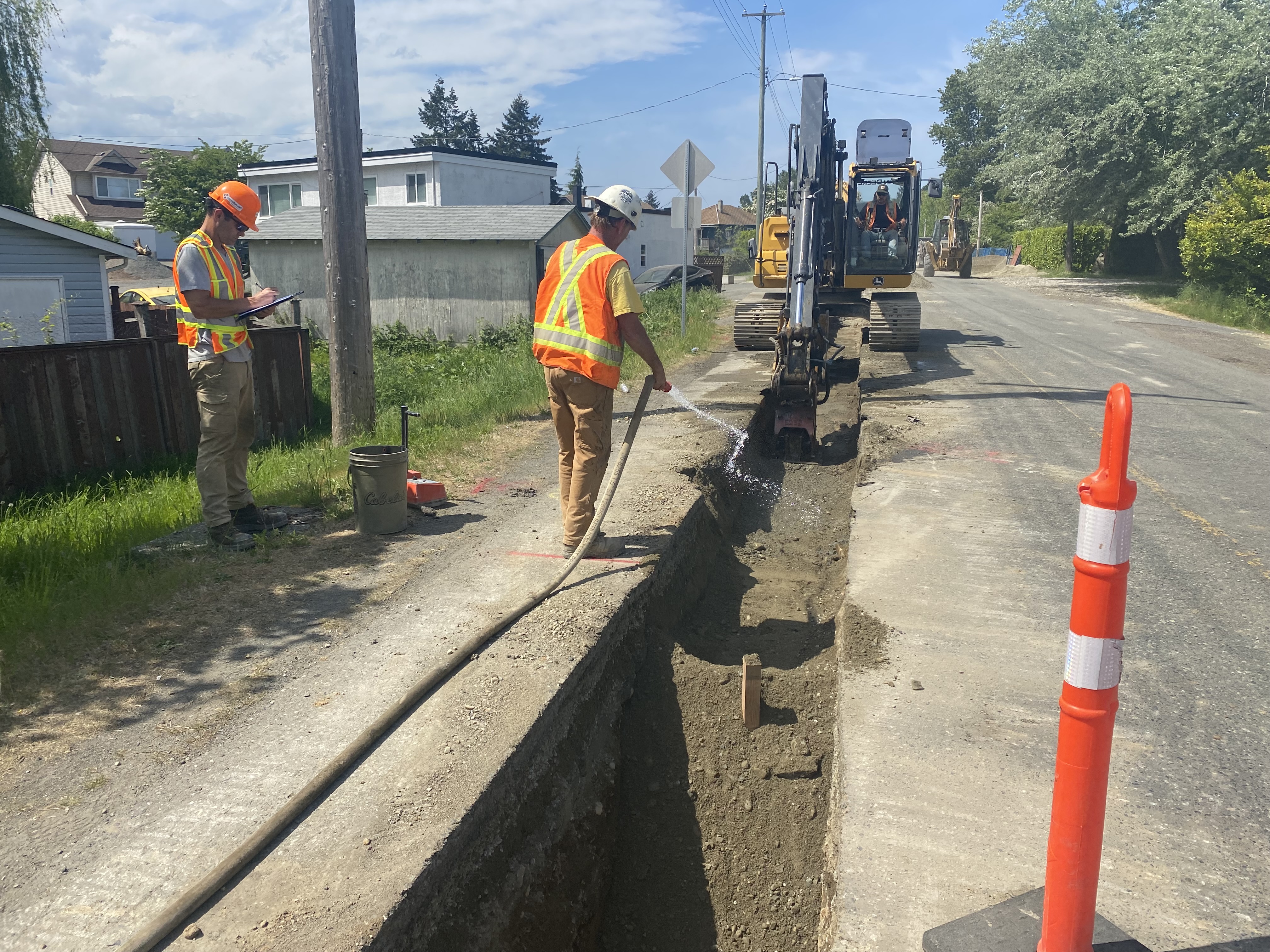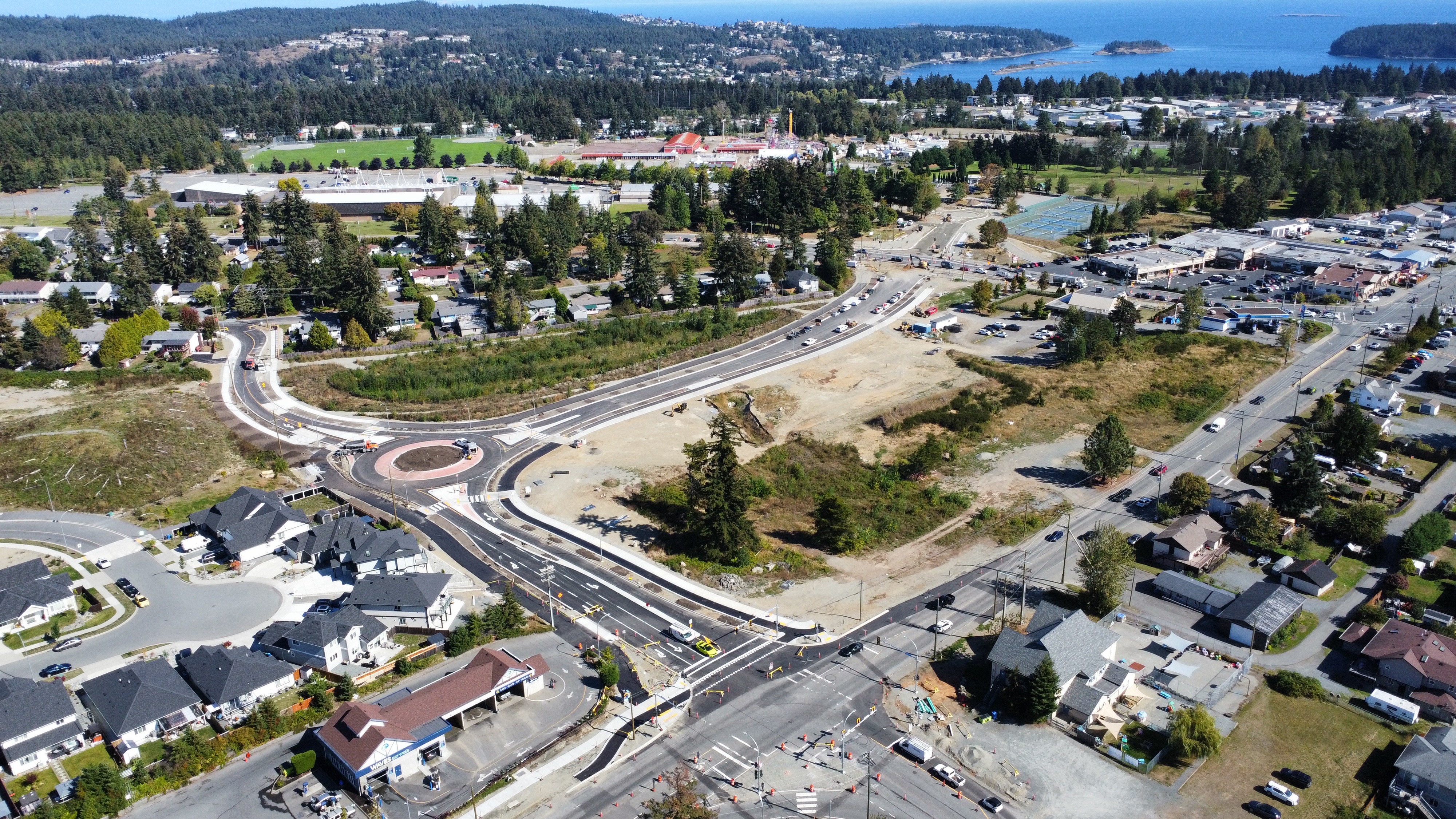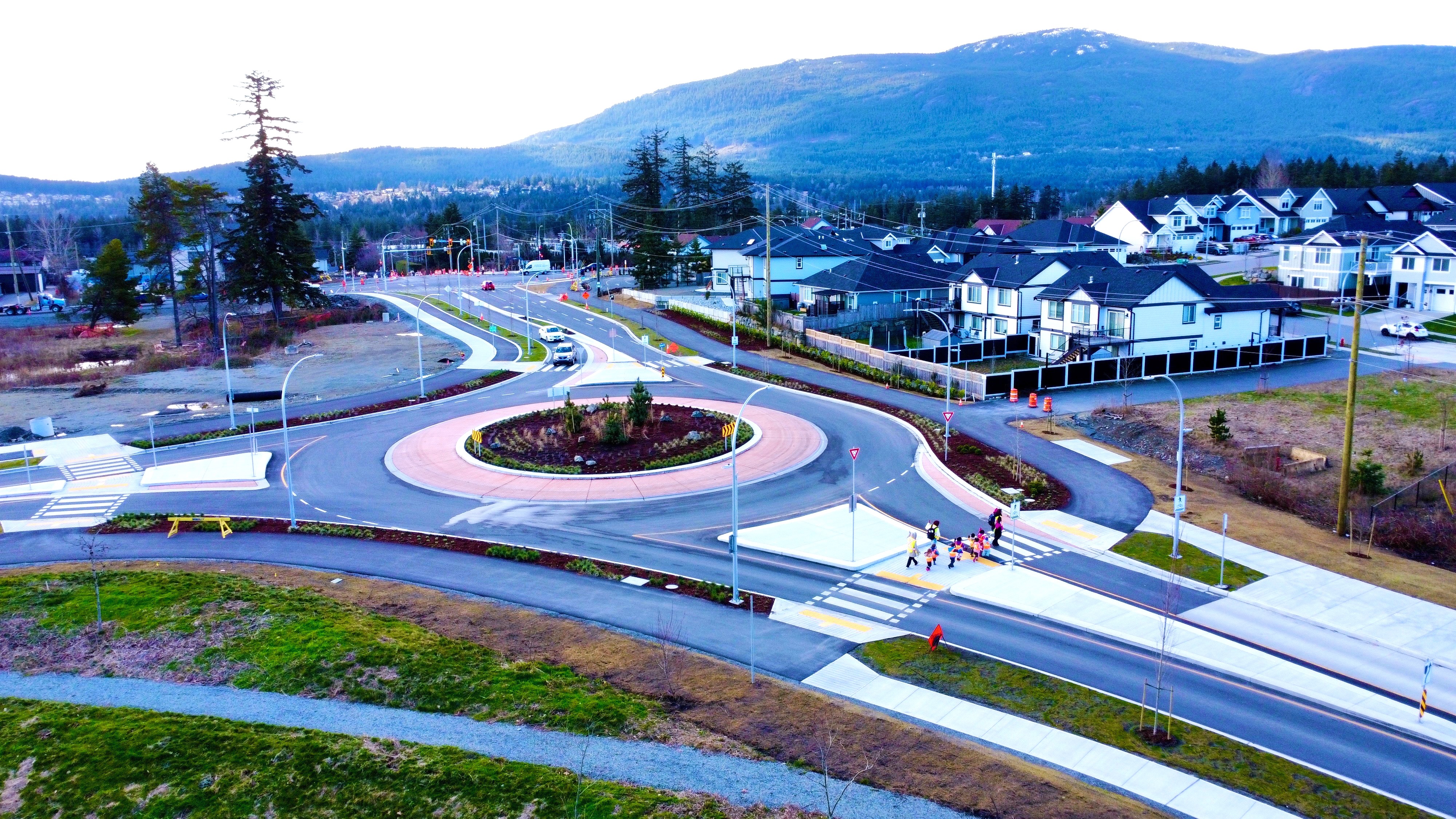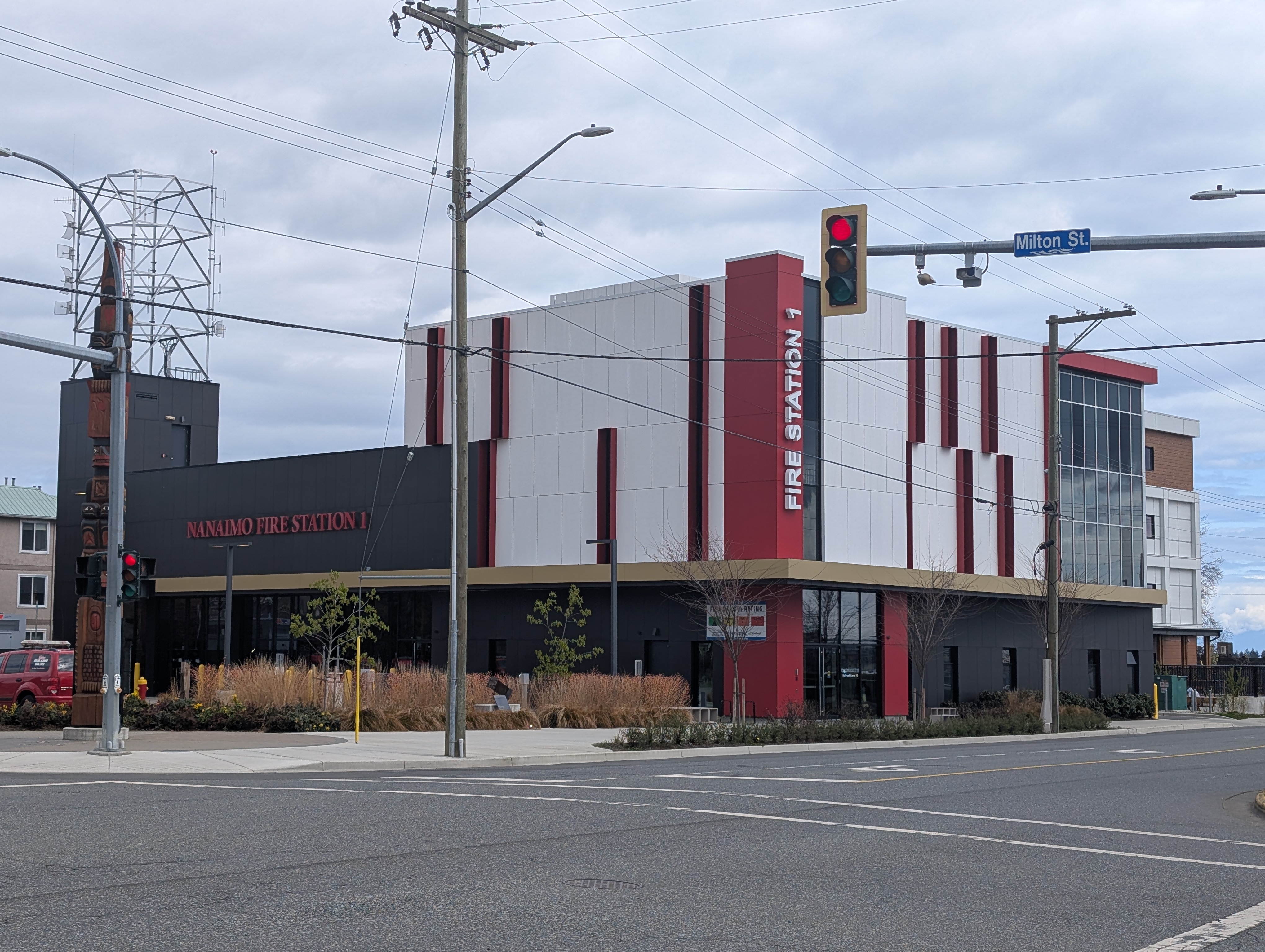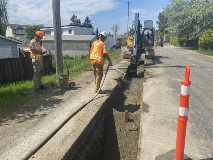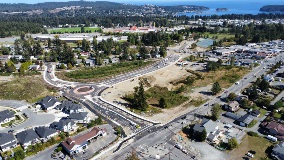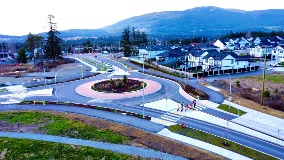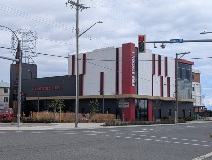Development Cost Charge Bylaw Project
Overview
The City of Nanaimo is updating its Development Cost Charges (DCCs) in 2025. DCCs are one time charges levied on new development to help recover the capital costs of providing infrastructure needed to service growth. This review builds upon the 2018 DCC review and incorporates current best practices and Legislative updates from the Province of British Columbia.
What are Development Cost Charges?
DCCs are fees imposed by municipalities on new development to help fund the capital costs of infrastructure expansions required to service that growth. These charges ensure that growth pays for growth, rather than placing the burden on existing taxpayers.
Why Update the DCCs?
Legislative Changes: The Province of British Columbia has updated its guidance and regulations regarding DCCs. This update ensures the City's DCCs are aligned with current provincial standards.
Updated Cost Information: The cost of infrastructure has changed since 2018. Updated engineering and construction cost information will be used to create more accurate DCCs.
Growth and Infrastructure Needs: Nanaimo is experiencing growth, which necessitates infrastructure expansion. The DCC update will ensure that there is funding available to build the necessary infrastructure.
Fairness and Equity: Updating DCCs ensures that the cost of new infrastructure is distributed fairly between new development and existing taxpayers.
Alignment with the 2025 ACC Project: The 2025 DCC update is occurring alongside the introduction of the Amenity Cost Charge Bylaw Project. This allows for a comprehensive approach to growth related cost recovery.
2025 Update
The 2025 DCC update will adhere to the most current guidelines provided by the Province of British Columbia, ensuring transparency and accountability. This update includes several key changes and improvements:
Governance and Priorities Committee - November 25, 2024
1. Infrastructure Categories
- Development cost charges are calculated separately for each category of infrastructure: water, sewer, drainage, parks, roads, solid waste and recycling facilities, fire protection facilities, and police facilities.
- The charges are determined by dividing the expected infrastructure costs required to service new development over the DCC timeframe by the number of new development units that will be served.
2. Establishing Charges:
- Updated and detailed analysis of infrastructure costs has been completed to ensure accurate and defensible DCC rates.
- DCCs are established with adoption of bylaw by Council.
- The bylaw establishes charges over the entire City.
3. Collection and Use of Charges:
- Charges may be collected from developers either at the time of subdivision or issuance of a building permit.
- Once collected, DCCs must be deposited into separate reserve funds for each infrastructure category and may only be used for capital costs relating to an approved DCC bylaw.
4. Exemptions and Reductions:
- Certain types of development, such as places of worship and specific residential developments, may be exempt from DCCs.
- Local governments may also choose to waive or reduce charges for not-for-profit rental housing, supportive living housing, and for-profit affordable rental housing.
5. Public Engagement:
- Public engagement will be carried out to obtain public input.
New Development Cost Charges
The Province of British Columbia's DCCs can be levied on new developments to fund various types of infrastructure necessary to support the demands of these developments. Here are the key categories of infrastructure for which new DCCs can be charged:
- Water: Charges for the construction or expansion of water supply systems.
- Sewer: Charges for the development or improvement of sewage collection and treatment facilities.
- Drainage: Charges for stormwater management systems to prevent flooding and manage runoff.
- Parks: Charges for the acquisition and development of parkland.
- Roads: Charges for the construction or expansion of transportation networks.
- Solid Waste and Recycling Facilities: Charges for facilities to manage and process solid waste and recyclables.
- Fire Protection Facilities: Charges for the development or enhancement of fire stations and related infrastructure.
- Police Facilities: Charges for the construction or improvement of police stations and related infrastructure.
As mentioned above, these charges are calculated based on the expected infrastructure costs required to service new development over a specific timeframe, divided by the number of new development units that will be served. This ensures that the costs are fairly distributed among new developments.
For more detailed information on development cost charges, please visit the Province of British Columbia's Development Cost Charges page: https://www2.gov.bc.ca/gov/content/governments/local-governments/finance/local-government-development-financing/development-cost-charges.
For more information about the Development Cost Charge Bylaw Project, please email engineeringinfo@nanaimo.ca.
- Progress
Development of infrastructure requirements and project lists underway in 2024/2025.
Next step will be presentation of draft rates and decision points for Council, expected in Q2 2025.
- Documents
- Details
- Background
Help us improve our website
Collection and use of your personal information
Information collected on this form is done so under the general authority of the Community Charter and
Freedom of Information and Protection of Privacy Act (FOIPPA), and is protected in accordance with FOIPPA. Questions about the collection of your personal information may be referred to the Legislative Services Department at 250-755-4405, or via email at foi@nanaimo.ca. Please also see our Privacy Policy.
-
Parks, Rec & Culture
- Recreation Facilities & Schedules
- Parks & Trails
- Activity Guide
- Events
- Register for a Program
- Drop-In Schedules
- Public Art
- Culture
- Poetry
-
City Services
- Garbage & Recycling
- Home & Property
- Water & Sewage
- Online Services
- Cemetery Services
- City Services Directory
-
Property & Development
- Urban Forestry
-
Building Permits
- Online Building Permit Application
- Building Permit Revision
-
Application for a Residential Building Permit
- Access (driveway) Permit
- Accessory Building Permit
- Alteration Permit
- Building Envelope Repair
- Carriage House
- Demolition Permit
- Fence or Retaining Wall Permit
- Geotechnical Reports
- Locate Permit
- New Construction Permit
- Plumbing or Services Permit
- Secondary Suite Permit
- Special Inspection Permit
- Swimming Pool Permit
- Woodstove Installation Info
- Green Home Initiatives
-
Apply for a Commercial Building Permit
- Access (driveway) Permit
- Commercial Alteration Permit
- Building Envelope Repair Permit
- Demolition Permit
- Fence or Retaining Wall Permit
- Geotechnical Reports
- Leasehold Improvement
- Locate Permit
- New Commercial Construction Permit
- Occupant Load Permit
- Signs Permit
- Special Inspection Permit
- Sprinkler Requirements
- Fees and Bonding
- Commercial Plumbing Permit
- Certified Professional Program
- Bylaws for Building
- Forms and Guidelines
- Book a Building Inspection
- Report Illegal Construction
- Request Building Plans
- Building Permit Statistics
- Permit Fee Calculator
- Building News and Alerts
- Fast Track Building Permits
- Development Applications
- What's Building in my Neighbourhood
- Development Activity Map
- Community Planning
- NanaimoMap
- Rebates
- Engineering Survey
- Land Use Bylaws
- Soil Removal and Depositing
- Heritage Buildings
- Sustainability
- Transportation & Mobility
-
Your Government
- Get Involved
- Government Services Guide
- News & Events
-
City Council
- Advocacy
- Contact Mayor & Council
- Council Meetings
-
Boards & Committees
- Advisory Committee on Accessibility and Inclusiveness
- Board of Variance
- Design Advisory Panel
- Finance and Audit Committee
- Governance and Priorities Committee
- Mayor's Leaders' Table
- Nanaimo Performing Arts Guild
- Parcel Tax Roll Review Panel
- Special District 68 Sports Field and Recreation Committee
- Public Safety Committee
- Understanding Council Committee Structures
- Council Policies
- Mayor's Office
- Council Initiatives
- Proclamations
- Bastion Lighting Requests
- Alternative Approval Process
- Budget & Finance
- Records, Information & Privacy
- Elections
- Contacts
- Careers
- Maps & Data
- Projects
- Tourism Nanaimo
- Grants
- Awards
- Accessibility & Inclusion
-
Doing Business
- Economic Development
- Doing Business with the City
- Business Licences
- Filming in Nanaimo
- City Owned Property
- Encroachments onto City Property
- Liquor Licences
- Cannabis Retail
- Business Improvement Areas
- Procurement Services
- About Nanaimo
- Green Initiatives
-
Public Safety
- Public Safety Contacts
- Nanaimo Fire Rescue
- Emergency Management
- Police & Crime Prevention
- City Bylaws
- Community Safety and Wellbeing
- Emergency Services


